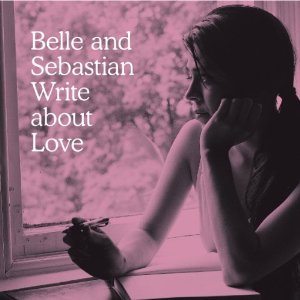Now that they’re headlining festivals, collaborating with Norah Jones and even cropping up as a specialist subject round on Mastermind, it’s easy to forget what a precious and cherishable proposition Belle & Sebastian once were. Unabashed aesthetes with a gift for exquisite outsider pop, they were a bona fide indie cult phenomenon, maybe the last of their kind. The very notion of C90s of their rare debut album Tigermilk being breathlessly exchanged between fans now sounds impossibly quaint, as does the furore surrounding the internet poll-jacking scandal which resulted in the Glasgow-based collective pipping Steps to best newcomer at the 1999 Brit Awards. But to inspire this level of devotion was testament to the band’s unique and elusive charms.
Times change: Belle & Sebastian aren’t quite the mild-mannered wallflowers they once were, their live performances maturing from the shambolic amateurisms of yore into something a little more consummate. They’ve signed to a major, and now reluctantly participate in the dreary industry treadmill of single releases, interviews and album promotional tours. And yet, listening to their eighth record Write About Love, it’s difficult to avoid the feeling that somewhere along the line some of the mystique which gave their early releases such a poetic and otherworldly quality has been misplaced in the process.
On recent albums, songwriting democracy has been the undoing of Belle & Sebastian: inferior cuts by other band members serving to detract from Stuart Murdoch’s melancholic pop sensibility and wry, gently humorous turn-of-phrase. What is most alarming about Write About Love is that, in some cases at least, it’s now the Murdoch tracks which are the weakest link. Both of Sarah Martin’s contributions – the cinematic opener ‘I Didn’t See It Coming’ and the coyly sashaying ‘I Can See Your Future’ – prove worthy additions to the canon. Even Stevie Jackson’s slightly gauche power-pop belter ‘I’m Not Living in the Real World’ at least raises the tempo above the pedestrian. Compare and contrast ‘Ghost of Rockschool’, a limp-wristed and vaguely cloying ditty about seeing the presence of God in the small things which fails to rise above such a mawkish conceit: you find yourself longing for the days when Murdoch would subvert a reference to bible studies with an allusion to S&M in the same breath.
A couple of curious collaborations highlight this album’s limitations. The title track, featuring the currently ubiquitous British actress Carey Mulligan on guest vocals, is a passable slice of 60s pop pastiche, with a spiky Ray Manzarek-style organ solo. But its central theme of longing for an escape from the tedium of the 9-5 has been explored with more subtlety and wit on previous singles ‘Legal Man’ and ‘Step Into My Office Baby’. ‘Little Lou, Ugly Jack, Prophet John’, featuring the aforementioned Norah Jones, is maybe the band’s most staid offering to date, a smoky torch ballad aimed squarely at the late-night Radio 2 market.
What makes this all the more regrettable is that Belle & Sebastian are capable of so much more. When Murdoch brings his A-game to Write About Love, such as on the breezy analogue synth-pop of ‘Come on Sister’ or the tender post-coital reverie of ‘Calculating Bimbo’, he is still a songwriter of formidable pedigree, capable of making you laugh and cry, often on the same track. No-one is expecting a Belle & Sebastian record to represent a great sonic leap forward, of course, but for a band who were once so prolific to return from a four-and-a-half year hiatus with a record that sounds like a pale retread of past glories smacks of coasting. The magic and mystery which once set them apart from the crowd has dissipated over a succession of increasingly indifferent albums, and you’re tempted to ask a question the band themselves once posed: is it wicked not to care?


